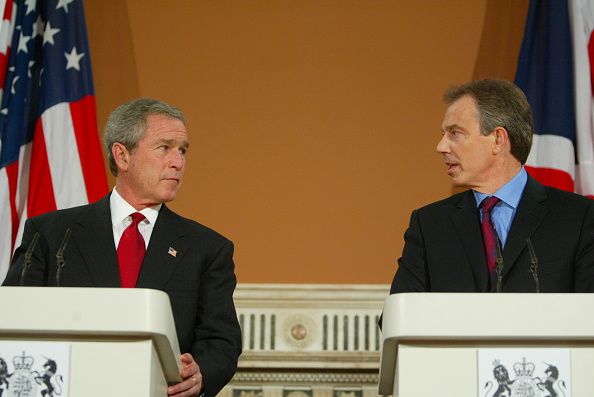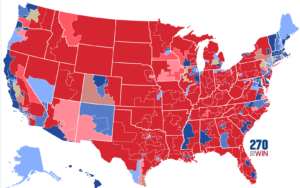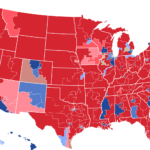The report on the invasion of Iraq in March 2003 by both the United States and Britain has been released on national televisions. The complete report on the Iraq inquiry has taken more than seven years to write. This lengthy inquiry report dictates all military actions and decision-making by both world leaders of the free world. On July 7th, 2016, Sir John Chilcot from the Iraq Inquiry Chairman publicly spoke about the results. Major news and mainstream medias have been taking an interest on the so-called, “Damning Report on British’s Military Actions in Iraq Back in 2003.” The core of the report focuses on the responsibilities, accountability, and behind-the-curtain moral reasoning of the invasion of Iraq. From the report, it is accurate that Britain had long decided to invade Iraq which was clear in the mind of the former British Prime Minister, Tony Blair.
The Chilcot Report on the Iraq Inquiry
The backing of this military agreement and action on invading Iraq in 2003 had been supported by the former United States President, George W. Bush. Let’s not forget the devastating terror attacks on September the 11th, 2001, on both World Trade Center, or on the Twin Towers, as they were famously called. Even tough almost 3,000 American lives were lost in these horrific attacks, Iraq and its authoritarian regime under Saddam Hussein had no evidence of WMDs (weapons of mass destruction). The former American president George W. Bush made it his priority to use these unfounded evidence of WMDs to invade Iraq in order to avenge the lives of the American people lost on 9/11.
At that time the United Nations and the Security Council should have been alerted that a possible invasion of Iraq could be imminent if not immediate. Since the aftermath of the terrorist attacks that shook the United States on 9/11/2001, Iraq became the number one target for deterring terrorism and prevent any other new terror attacks on American soil. According to and article in The Guardian by Luke Harding “Elizabeth Wilmshurst was the deputy legal officer and the Foreign Office in the run-up to invasion. She took the view that for the UK to join a US attack on Iraq a second UN resolution was needed authorizing military force.” (8 July 2016). A second UN resolutions was needed before the two world leaders made their decisions to send troops in Iraq. Harding has pointed out in the same published article on The Guardian that, “The UN’s chief weapon inspector, Hans Blix came under huge pressure to confirm the US-UK case for war: that Saddam had weapons of mass destruction. Blix believed this to be the case in 2002. But his inspectors did not find anything. And lastly,’This was not sufficient to justify a preemptive invasion, he said.'” (8 July 2016). A panel of experts have confirmed that there were not sufficient evidence to go on and invade Iraq.
Thirteen years after the fact, more than 150,000 people have died since the invasion of Iraq in March of 2003, which has in itself created an unprecedented political vacuum of undesirable and troubling consequences for years to come. Major terrorist networks and groups emerged from the ashes of the crumbling country of Iraq in order to take advantage of this political vacuum left by both the American and the British troops. The initial goal was to take down the brutal regime of Saddam Hussein and instill a democratic parliament with the right to vote and have a voice. However, the establishment of a democratic institution has been failing and the people of Iraq have been more insecure than ever before. As a result, many Iraqi residents have been exiled out of Iraq due to the strong presence of the Islamic State. The arrival of the American troops back in 2003, who have taken down the statue of Saddam Hussein and put the American flag instead, has created some very unsettling consequences that are still felt today by most of the population of Iraq. One testimony from a citizen of Iraq on the NPR News radio station has recorded,”Before I agreed on taking down Saddam Hussein thirteen years ago, but now I see my country with 1,000 Saddam Hussein in power.”(7 July 2016). He sadly regrets the fact that Saddam Hussein should have stayed in power because at least he kept his country safe and pushed out all terrorist groups from infiltrating his borders.
It is clear from both testimonies on today’s actual Iraqi ground situation and the Iraq Inquiry Report released last week that the invasion of Iraq has been an utter failure on many levels such as military grounds, unfounded evidence of WMD, and false assumptions with not enough clearance from the UN and the Security Council. As of today, the report has shown that the repercussions of the invasion of Iraq have worsened not improved the situation in Iraq today. It has made the country more volatile, more unstable, and more prone to regional and local civil war conflicts before 2003.
Main Photo:













